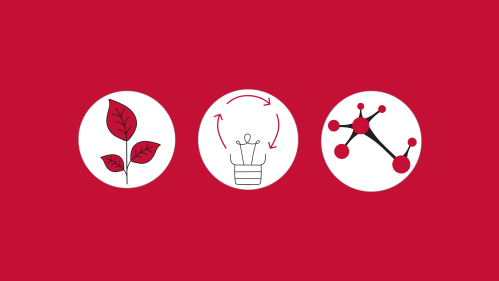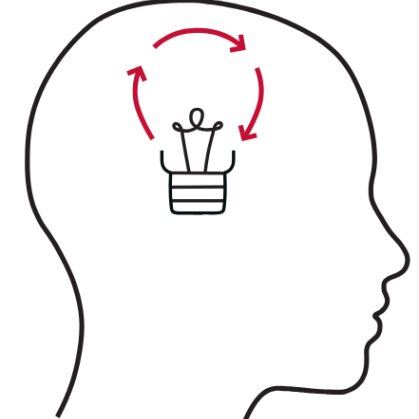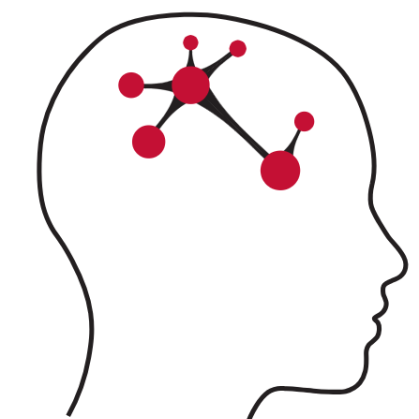
Scarlet Skills
Learning is a skill, and understanding the 3Ms can help you learn more effectively.
Scarlet Skills
The Scarlet Skills, an initiative modeled after Learning at Iowa, aims to encourage a shared language and understanding around three core elements that support academic success: mindset, metacognition, and memory. As with most skills, they can be developed and improved upon with effort and practice. The overall goal is to help students take ownership of their learning process by encouraging them to see learning as a skill that can be continually improved. This goal will be achieved by providing opportunities for students to learn about the three elements and providing resources and professional development to university faculty and staff to support students in developing and practicing these skills.
Through this initiative, new students will be able to transition more quickly and effectively to university-level thinking and studying by providing them with a foundational knowledge base and a network of coordinated support. Continuing students will discover evidence-based strategies for modifying their learning strategies as coursework increases in difficulty. The 3Ms project will empower students at any stage of the college journey to level up their learning.
The 3Ms for Effective Learning
Mindset: At its most fundamental, mindset refers to whether students perceive intelligence and ability to be more fixed or more malleable. Students who believe people are born with fixed levels of intelligence or ability tend to be less accepting of challenges, less resilient in the face of setbacks, and less open to feedback than students with a growth mindset. These mindsets, however, are not binary, nor are they consistent within an individual. They can be contextual, varying across the subjects and tasks that students encounter in their learning. They also have a social element. Students can be influenced by the mindset culture around them; the beliefs of their families, peers, and especially their instructors can influence their success. The 3Ms project aims to foster a growth culture across RU-NB to help students increase their resiliency in the face of the ups and downs inherent in the learning experience.
Metacognition: Metacognition is the act of thinking about your thinking, a reflective process that involves planning, monitoring, and evaluating learning. Metacognitive skills help students to more accurately judge their own learning and performance, monitor their progress, and make adjustments to their thinking patterns or study strategies when needed. Metacognitive skills are a strong predictor of academic success. This initiative will help students understand how errors and poor performance serve as opportunities to metacognitively reflect on what they don’t know, choose targeted strategies for improvement, and strengthen knowledge and application.
Memory: To make the model easily accessible to students, memory is used as the name of this element, but it refers to the larger process of cognition, including sense-making, encoding, information storage, recall, and effective application. When students are introduced to evidence-based learning strategies and have a solid foundational understanding of what learning is and how it occurs, they can study more effectively and efficiently, choosing their approaches to fit the task and subject, and modifying if and when they evaluate that their choices are not sufficiently supporting retention of content. The interdependence of the three elements is evident here – students who give themselves the opportunity to learn through growth mindset, and who engage metacognition by evaluating and adjusting their learning strategies, are more able to retain, recall, and apply
what they learn.
Mindset
Mindset refers to belief in one’s ability, and it affects our motivation to take action. Seeing ability as something you can grow with time and effort can encourage you to face challenges, learn from errors, and benefit from feedback.
Metacognition
Metacognition is often described as thinking about one’s thinking. It means reflecting on your learning strategies and level of understanding to evaluate and adjust if needed. This provides a more accurate idea of how well you know content, enhancing learning efficiency.
Memory
Memory and learning are closely connected. You need to process and understand information to effectively apply it to new situations. It takes repeated active engagement to grasp information, connect it to prior knowledge, recall it, and use it effectively.


